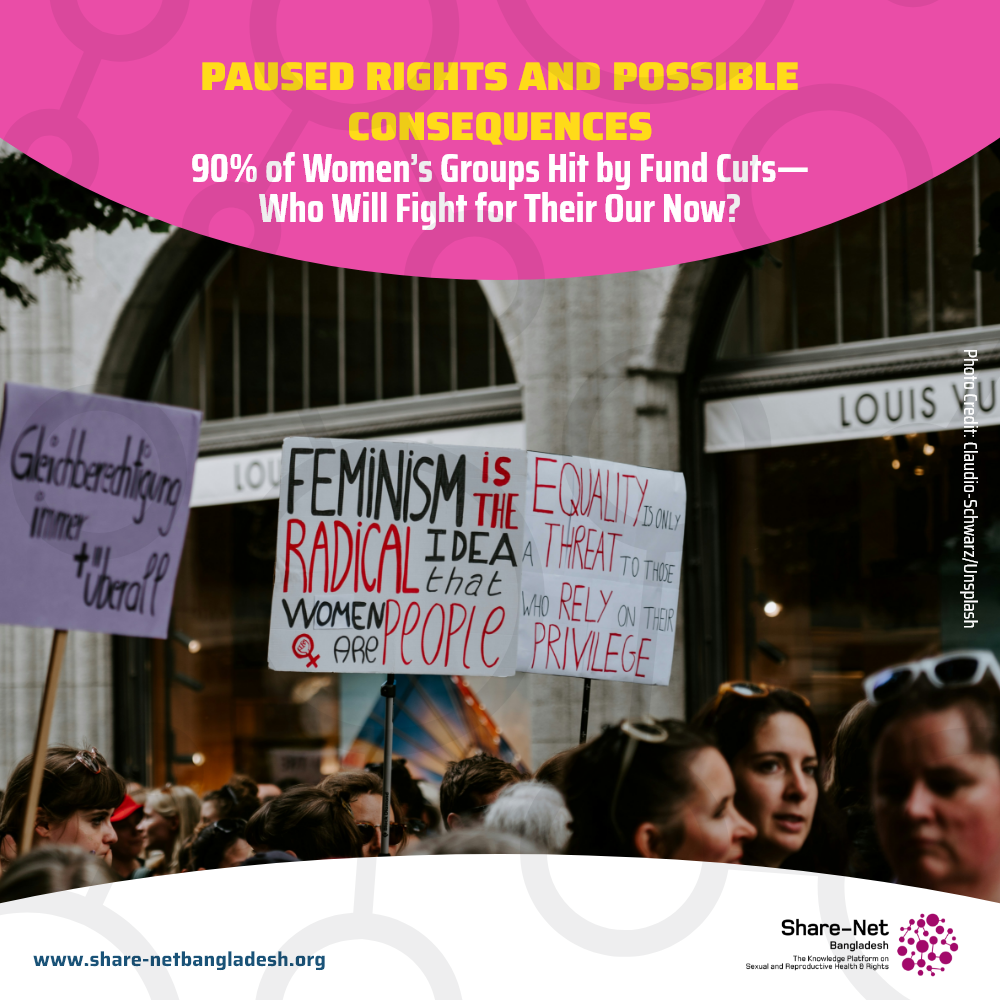Paused Rights And Possible Consequences: 90% of Women’s Groups Hit by Fund Cuts—Who Will Fight for Our SRHR Now?
In what many experts are calling a “full-on assault” on gender equality, the United Nations has delayed four major women’s rights reports this year due to severe funding cuts. Among the hardest hit are reports tackling gender-based violence, reproductive rights, and legal discrimination—areas already under intense global pressure.
The Office of the High Commissioner for Human Rights (OHCHR) faces a $60 million shortfall, largely caused by unpaid contributions and foreign aid cuts, notably from the United States. As a result, key monitoring and policy recommendation mechanisms have been paused—putting real lives at risk, especially in crisis-affected and low-income countries.
“We’re silencing policy dialogue,” said Pooja Patel, Programme Director at the International Service for Human Rights.
These developments have alarming implications for sexual and reproductive health and rights (SRHR). A 2025 update from UN Women revealed that 90% of women’s rights organisations in crisis-affected countries have seen funding slashed, limiting their ability to deliver services like contraception, maternal health care, and protection from gender-based violence.
When Rights Are Paused, Health Is Risked
According to the Guttmacher Institute, global unmet need for modern contraception stands at over 218 million women, with Bangladesh alone hosting over 7 million women in that category. These needs worsen during humanitarian crises—floods, displacement, or pandemics—where safe childbirth, menstrual hygiene, and reproductive autonomy are often the first casualties.
But now, even the mechanisms that track, report, and advocate for these rights are being put on hold.
The Commission on the Elimination of Discrimination Against Women—operational since 1979—has suspended its next meeting indefinitely due to liquidity concerns. This delay jeopardises decades of progress in holding governments accountable for women’s health, safety, and reproductive freedom.
Backlash on Gender Equality
A March 2025 UN report showed that one in four countries reported a rollback in women’s rights, often masked as “traditional values” or austerity measures. In this context, delaying key reports and investigations sends a dangerous signal.
Ecuador, during a June Human Rights Council meeting, warned that the funding freeze could worsen the “huge backlash” against the rights of women and girls globally.
And it’s not just international diplomacy. These gaps translate into fewer community clinics, fewer safe spaces for adolescent girls, and fewer legal tools to challenge forced marriage or rape.
“It really does affect the everyday lives of women and girls,” said Claire Somerville from the Geneva Graduate Institute.
Where Do We Go From Here?
What’s needed now is global pressure to restore funding and fast-track stalled reports, alongside a renewed commitment to SRHR within climate, conflict, and crisis response planning. The voices of local, grassroots organisations must be amplified—not muted—during global funding decisions.
Because when data disappears, so do accountability and rights.
Source: Reuters


